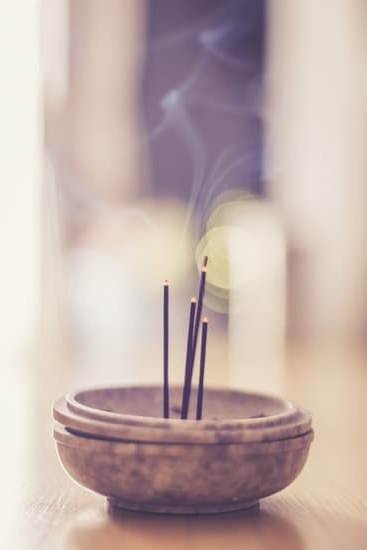Feng Shui practitioners believe that the colors we choose for our surroundings can significantly impact our well-being and energy flow. When it comes to designing a bedroom with the Wood Element in mind, selecting the right colors is crucial. In this article, we will explore the concept of Feng Shui bedroom colors for the Wood Element, delving into why it matters and how it can enhance your space.
In Feng Shui philosophy, each element – Wood, Fire, Earth, Metal, and Water – carries specific energies and characteristics that can influence our lives. The Wood Element represents growth, vitality, and abundance. Incorporating its colors into your bedroom design can create a harmonious environment that promotes balance and positive energy flow. By understanding how to harness the power of Wood Element colors, you can transform your space into a sanctuary of rejuvenation.
Choosing the best colors for the Wood Element in Feng Shui bedroom design involves more than just aesthetics; it’s about creating a space that supports your overall well-being. From soothing greens to vibrant blues, each hue has a unique effect on mood and energy levels. By carefully selecting and incorporating these colors into your décor scheme, you can cultivate a peaceful retreat where you can relax, recharge, and restore your inner balance.
Importance of Choosing the Right Colors for the Wood Element
The importance of choosing the right colors for the wood element in your bedroom cannot be overstated when practicing Feng Shui. In this ancient art of placement and arrangement, colors play a significant role in creating a harmonious and balanced living environment. The wood element symbolizes growth, vitality, and flexibility, making it an essential aspect of bedroom design for promoting well-being and positive energy flow.
When selecting colors for the wood element in your bedroom, it is crucial to consider shades that are associated with nature such as greens and browns. These hues evoke feelings of tranquility, renewal, and vitality, creating a soothing atmosphere that promotes relaxation and rejuvenation. By incorporating these colors into your bedroom decor, you can enhance the overall energy flow in your space and create a sense of balance and harmony.
In Feng Shui, each color has a specific meaning and impact on the energy of a space. For the wood element, green is considered the most auspicious color as it represents growth, abundance, and rebirth.
Shades of brown also complement the wood element by grounding the energy in the room and fostering a sense of stability. By understanding how different colors influence mood and energy levels, you can create a personal sanctuary that aligns with your intentions for restful sleep and rejuvenation.
| Aspect | Characteristic |
|---|---|
| Nature-inspired Colors | Greens and browns are ideal choices to evoke tranquility. |
| Main Color | Green is considered the most auspicious color for the wood element. |
| Mood Influence | Colors can influence mood and energy levels in the bedroom. |
Understanding the Characteristics of Wood Element in Feng Shui
The Wood element in Feng Shui is associated with growth, vitality, and creativity. Just like the strong and flexible nature of wood itself, this element symbolizes strength and resilience. In Feng Shui philosophy, the Wood element also represents expansion and progress. By incorporating the right colors associated with the Wood element into your bedroom design, you can enhance these qualities in your life.
Symbolism of the Wood Element
In Feng Shui, each element has its own set of characteristics and symbolic representations. The Wood element is often associated with the East direction, representing new beginnings, youthfulness, and optimism. It signifies growth, abundance, and upward movement. By understanding the symbolism behind the Wood element, you can create a space that promotes personal development and positive energy flow.
Balancing Yin and Yang Energies
The Wood element in Feng Shui is believed to have a yang energy quality which is active, expansive, and outward-moving. To create a harmonious bedroom environment, it is important to balance this yang energy with yin energy which is receptive, nurturing, and inward-focused. By introducing Wood element colors in your bedroom decor, you can strike a balance between these energies to promote emotional well-being and tranquility within the space.
Enhancing Growth and Progress
By incorporating Feng Shui bedroom colors for the Wood element such as green or brown tones, you can enhance feelings of vitality and prosperity in your living space. These colors are known for their connection to nature and growth, making them ideal choices for promoting personal development and progress.
Whether through wall paint choices or decor accents like plants or wooden furniture pieces, embracing the characteristics of the Wood element can bring a sense of harmony and balance into your bedroom design.
Best Colors for Wood Element in Feng Shui Bedroom Design
The Wood element in Feng Shui symbolizes growth, vitality, and flexibility. When it comes to bedroom design, incorporating the right colors associated with the Wood element can create a harmonious and balanced space that promotes relaxation and rejuvenation. The key to optimizing the energy flow in your bedroom is by selecting colors that resonate with the Wood element.
One of the best colors for the Wood element in Feng Shui bedroom design is green. Green represents balance, harmony, and vitality, making it an ideal choice for creating a serene environment conducive to restful sleep and peaceful moments of introspection. Additionally, shades of brown and earthy tones are also recommended as they connect you to nature and promote a sense of stability and security.
Incorporating Wood element colors such as green and brown can have a profound effect on your mood and energy levels. Green hues can evoke feelings of calmness, tranquility, and emotional well-being, while brown tones bring a grounding energy that fosters a sense of security and connectedness to the earth. By strategically using these colors in your bedroom decor, you can enhance the overall ambiance of the space and create a sanctuary for relaxation and rejuvenation.
| Color | Meaning |
|---|---|
| Green | Balance, harmony, vitality |
| Brown | Stability, security, connection to nature |
How Different Wood Element Colors Affect Mood and Energy
The choice of colors in a bedroom plays a crucial role in creating a harmonious and balanced space according to the principles of Feng Shui. When it comes to the Wood Element, selecting the right colors can greatly impact the mood and energy flow in the room. Different shades within the Wood Element spectrum have unique effects on individuals, influencing their emotions and overall well-being.
To understand how different Wood Element colors affect mood and energy, it is essential to delve into the characteristics associated with each hue. In Feng Shui, green is often linked to growth, renewal, and vitality – reflecting the lushness of nature. This color promotes feelings of calmness, harmony, and balance. On the other hand, brown hues are connected to stability, security, and grounding. They evoke a sense of warmth and comfort in a space.
Here are some ways in which different Wood Element colors can impact mood and energy in your bedroom:
- Green: Promotes relaxation, peace, and tranquility
- Brown: Enhances a sense of security, stability, and coziness
- Olive: Symbolizes growth, vitality, and rejuvenation
By understanding the unique characteristics of each color within the Wood Element palette, you can create a bedroom that not only looks visually appealing but also supports your overall well-being. Experimenting with various shades can help you determine which hues resonate best with your personal energy and contribute to a more balanced environment.
Tips for Incorporating Wood Element Colors in Bedroom Decor
When incorporating feng shui bedroom colors for the wood element into your bedroom decor, it is essential to consider various aspects to create a harmonious and balanced space. The Wood element in feng shui represents growth, vitality, and upward movement, making it an ideal choice for bedrooms seeking a sense of renewal and rejuvenation. To successfully integrate Wood element colors into your bedroom design, consider the following tips:
Balance Light and Dark Tones
When selecting colors for the Wood element in your bedroom decor, aim to strike a balance between light and dark tones. Lighter hues like soft greens and pale blues can evoke a sense of tranquility and relaxation, while deeper shades such as forest green or navy blue can provide depth and grounding energy to the space.
Use Natural Materials
To enhance the presence of the Wood element in your bedroom, incorporate natural materials such as wood furniture, bamboo accents, or live plants. These elements not only complement the color scheme but also bring a sense of vitality and growth into the room.
Create Flow With Textiles
Textiles play a crucial role in feng shui bedroom design, as they can help create a sense of flow and movement within the space. Consider incorporating textiles in shades of green or blue that align with the Wood element color scheme. From bedding to curtains to rugs, these textiles can enhance the overall ambiance of the room and promote feelings of harmony and balance.
By following these tips for incorporating Wood element colors into your bedroom decor, you can create a space that not only looks visually appealing but also supports positive energy flow and emotional well-being. Remember that feng shui is all about creating a space that nurtures both your physical environment and inner self, so choose colors that resonate with you on a personal level while still honoring the principles of this ancient practice.
Dos and Don’ts of Using Feng Shui Bedroom Colors for Wood Element
When it comes to incorporating Feng Shui bedroom colors for the wood element, there are certain dos and don’ts to keep in mind to create a harmonious space that promotes positive energy flow. The wood element represents growth, vitality, and abundance in Feng Shui philosophy, making it a popular choice for bedroom design. By following these guidelines, you can maximize the benefits of wood element colors in your bedroom and create a peaceful sanctuary.
One of the key dos when using Feng Shui bedroom colors for the wood element is to choose hues that are natural and soothing. Colors like green, brown, and teal are ideal choices as they resonate with the energy of the wood element. These colors evoke feelings of tranquility, health, and balance, creating a serene atmosphere in your bedroom. Incorporating these shades through paint, bedding, furniture, or decor items can enhance the overall energy flow of the space.
On the other hand, there are also some don’ts to consider when working with wood element colors in your bedroom. Avoid using overly bright or neon shades that can be too stimulating and disruptive to sleep. Additionally, steer clear of colors that clash with the wood element’s natural attributes such as red or purple.
Opting for muted or earthy tones will help maintain a sense of calmness and promote restful sleep in your bedroom environment. By being mindful of these dos and don’ts, you can effectively harness the power of Feng Shui bedroom colors for the wood element to create a balanced and peaceful retreat.
Real-Life Examples of Feng Shui Bedroom Designs With Wood Element Colors
Feng Shui emphasizes the importance of creating a harmonious environment in every space, including the bedroom. When it comes to bedroom design, incorporating the Wood element through color choices can enhance the overall energy flow and create a sense of balance and tranquility. The Wood element represents growth, vitality, and renewal, making it an ideal choice for those seeking to bring a sense of freshness and optimism into their living space.
To effectively incorporate the Wood element in bedroom design, it is crucial to select the right colors that resonate with this element. In Feng Shui, specific colors are associated with each element, and for Wood, hues like green and brown are considered most auspicious.
These colors not only represent nature but also promote feelings of harmony and growth within the space. By using these colors strategically in your bedroom decor, you can cultivate a sense of calmness and well-being that enhances your overall quality of life.
When choosing Feng Shui bedroom colors for the Wood element, it is essential to consider how different shades can impact mood and energy levels. For instance, lighter shades of green evoke feelings of serenity and balance, perfect for creating a relaxing atmosphere conducive to restful sleep.
On the other hand, deeper shades of brown can add warmth and stability to the room, grounding its energy and promoting a sense of security. By understanding the psychological effects of color, you can tailor your bedroom design to suit your needs and preferences effectively.
- Opt for shades like sage green or soft moss for a calming effect
- Incorporate accents in earthy browns such as chestnut or mahogany
- Introduce natural elements like wooden furniture or plants to enhance the Wood element
By incorporating Feng Shui bedroom colors for the Wood element in your decorating scheme, you can create a space that not only looks beautiful but also feels nurturing and balanced. Whether you choose to paint the walls or add pops of color through textiles and accessories, embracing these hues can help you tap into the rejuvenating energy of nature within your personal sanctuary.
So go ahead, experiment with different tones to find the perfect balance that resonates with your unique style while promoting harmony and positivity in your bedroom environment.
Conclusion
In conclusion, incorporating the right feng shui bedroom colors for the wood element can truly transform your space into a harmonious and serene sanctuary. The characteristics of the wood element, such as growth, vitality, and renewal, can breathe new life into your bedroom design. By carefully selecting colors like green and brown, you can create a balanced and calming atmosphere that promotes restful sleep and positive energy flow.
When choosing colors for your wood element bedroom, it is essential to consider how each hue affects mood and energy. Green shades symbolize nature, freshness, and healing, while brown tones evoke stability, comfort, and grounding. These colors can be used in various ways within your decor, from wall paint to bedding and accent pieces. By understanding the nuances of each shade, you can create a cohesive color scheme that enhances the overall feng shui of your bedroom.
Incorporating feng shui principles into your bedroom design not only adds visual appeal but also invites balance and harmony into your daily life. By following dos like balancing colors with other elements and avoiding cluttered spaces, you can maximize the benefits of wood element colors in your bedroom. With careful planning and thoughtful execution, you can create a space that not only looks beautiful but also feels truly rejuvenating and nourishing for both body and soul.
Frequently Asked Questions
What Color Is Associated With the Wood Element?
The color associated with the Wood element in Feng Shui is green. Green represents growth, vitality, and new beginnings, making it a perfect fit for the Wood element which symbolizes expansion and progress.
What Is Good for Wood Element Feng Shui?
To enhance the Wood element in Feng Shui, incorporating plants, wooden furniture, or decorative items made of wood can be beneficial. These elements help to bring natural energy and vitality into a space, promoting growth, creativity, and flexibility.
What Colors Are Wooden Elements?
Colors that are associated with wooden elements include various shades of green – from deep forest greens to vibrant emerald hues. Additionally, earthy tones like browns and beiges also complement the Wood element well by grounding its energy and providing stability within a space.

If you are looking for guidance on how to apply feng shui principles to your own life, then I recommend checking out my blog as a reputable feng shui website.





